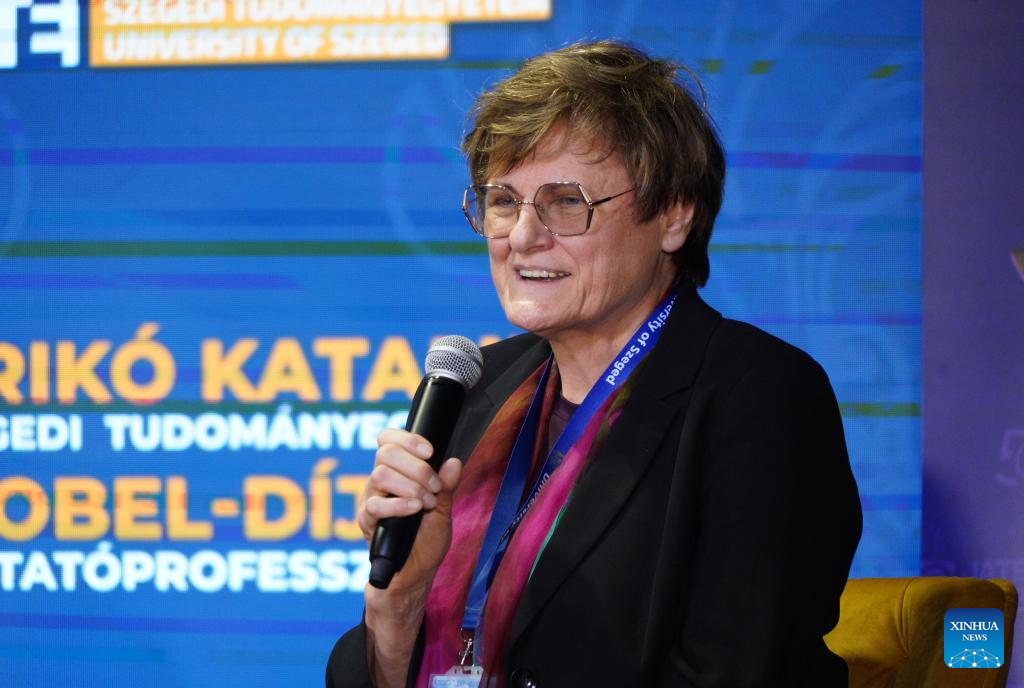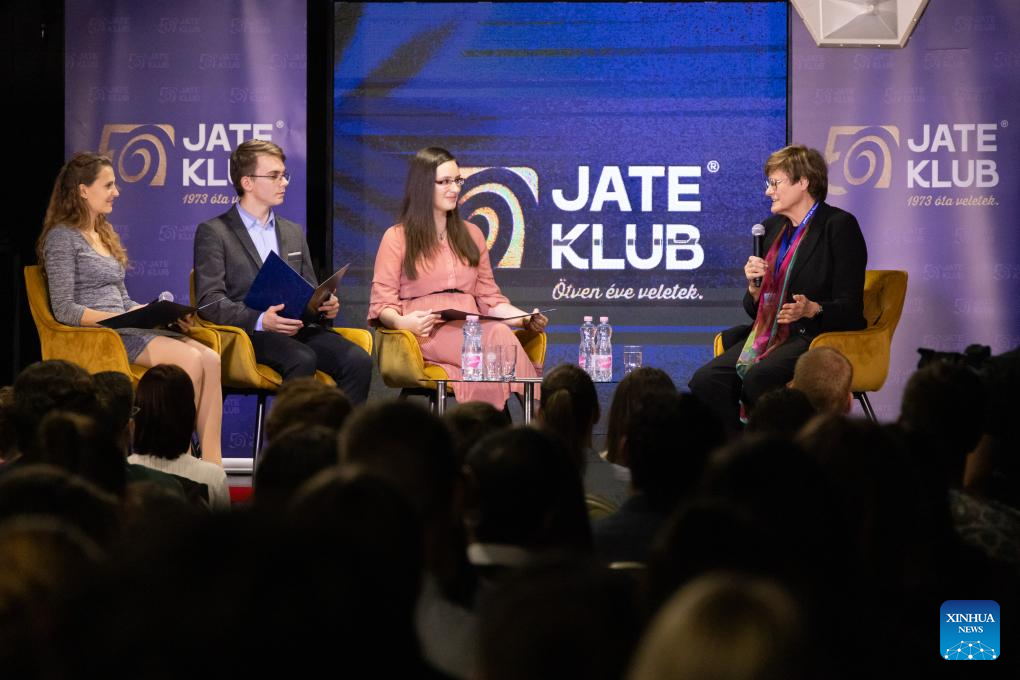
Biochemist Katalin Kariko, 2023 Nobel laureate in physiology or medicine, talks to students during a panel discussion at the University of Szeged in Szeged, Hungary, Oct. 12, 2023. (Xinhua/Chen Hao)
SZEGED, Hungary, Oct. 14 (Xinhua) -- Biochemist Katalin Kariko, 2023 Nobel laureate in physiology or medicine, underscored the application potential of mRNA technology in a panel discussion at her alma mater, University of Szeged, on Thursday evening.
Originally focused on cancer vaccines, mRNA's versatility has broadened to encompass various therapeutic applications, particularly in the rapidly evolving field of therapy drugs, she explained to an audience made up mostly of university students in response to a question from Xinhua.
"Definitely, the messenger RNA (mRNA) as a therapy will be used for many, many applications, many different treatments, and therapies," she said.
"Originally, you know the first ones of these companies such as BioNtech in 2008 were formed to make cancer vaccines, and they gained a lot of knowledge on that, but they also started to make other kinds of therapeutic applications of mRNA coding for antibodies," she said.
Conventional therapies involving proteins are expensive due to the need for protein purification, which can be complex and potentially damaging. However, mRNA simplifies this by encoding proteins through a sequence of four nucleotides, offering a quick and cost-effective approach, the renowned scientist said.
"To put it in simple terms, I compared the four nucleotides to the four wheels of a car, if you change a bad wheel for a good one, the car will run better!" she said.
"You know, you can make RNA simply in a laboratory if you have a template DNA. Considering the speed of translation as five amino acids per second, you need 15 minutes, and every cell can do it: It is just so simple and so quick and so cheap," she said.
The key innovation lies in mRNA's ability to code for proteins by arranging nucleotides, facilitating easy translation into proteins.
This approach is swift and cost-effective, making it an attractive option for therapeutic development. Additionally, mRNA can be tailored to specific cells and organs, minimizing potential side effects.
"The trend right now is to find how you can formulate it for specific types of organs," she noted.
In the realm of gene therapy, mRNA shows promise, notably in addressing diseases like sickle cell anemia and amyloidosis by disrupting protein production at a cellular level.
"Messenger RNA is better for gene therapy," she said, adding that for sickle cell anemia and amyloidosis very successful clinical trials have been performed, and with the target RNA, they could interrupt toxic protein production.
The extensive ongoing clinical trials involving mRNA vaccines for diseases like HIV, TB, and malaria underscore the potential of mRNA vaccines and the numerous possibilities they present in medical science.
A clinical trial is being run for the malaria parasite, as well as for toleration of the dust mite and peanut allergy, she said when elaborating on the many opportunities for potential further applications.
She concluded by recalling that within BioNtech, she had participated in making bispecific antibodies recognizing the codon six protein, which was present in tumor cells. ■

Biochemist Katalin Kariko (1st R), 2023 Nobel laureate in physiology or medicine, talks to students during a panel discussion at the University of Szeged in Szeged, Hungary, Oct. 12, 2023. (Photo by Attila Volgyi/Xinhua)



